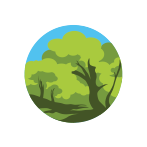RE
Intent:
At Theydon Bois Primary School, we believe it is important for all students to learn about and from different religions to deepen their understanding of the world. Through Religious Education (RE), students broaden their understanding of various faiths and develop an appreciation for the diverse beliefs, values, and traditions across individuals, societies, and cultures. We encourage students to ask insightful questions, reflect on their own beliefs and values, and share their personal experiences. Our RE curriculum is enriched by visits to local places of worship, and we follow the Saffron Academy framework, which links to the Essex Agreed Syllabus, as the foundation of our teaching.
We are dedicated to delivering a curriculum that:
-
Celebrates our school community.
-
Fosters creative learning through exceptional teaching that builds on previous RE knowledge, encouraging skill reinforcement and progression from a strong foundation.
-
Values the local community by acknowledging the significance of nearby places of worship.
-
Is inclusive, fostering self-confidence and valuing the uniqueness of each child while promoting tolerance of different beliefs.
-
Promotes curiosity about different beliefs, fostering inquiry-based RE skills that deepen cultural understanding.
-
Champions equality, fosters understanding of British values, and ensures children are equipped for life in modern Britain.
Religious Education, alongside all other subjects, plays a key role in fostering social awareness and understanding in our children. We encourage them to question the world around them and reflect on their own beliefs, values, and experiences. Our curriculum aims to promote independence, curiosity, creativity and discussion.
Knowledge Organisers
Theydon Bois Primary has created its own Knowledge Organisers to support with memory skills, in order to retain key facts and support with learning. There is lots of educational research into memory, indicating that our working memory capacity is limited (cognitive load theory), so by storing more in our long-term memory, we can free up our working memory capacity (Paas et al, 2004), which will support our day to day learning.
We created these Knowledge Organisers to aid the retention of key knowledge, vocabulary and skills taught within topics; to encourage that pupils then actively use this knowledge, vocabulary and these skills wherever possible. Our goal is that these Knowledge Organisers will be introduced at the start of each topic within our half termly themes. They provide key information that we expect all children to be able to discuss and expand upon by the end of the topic.
They provide parents with an insight into what our pupils will be learning over the half term. The individual Knowledge Organisers will also be used regularly within lessons and recapped at the end of the topic or theme, highlighting to the pupils how much they have learnt.
The Knowledge Organisers also provide a starting point for parents who wish to challenge their children further. We actively encourage parents to investigate and research the topic in greater depth or to reinforce at home, what the pupils are doing in the classroom. Our Knowledge Organisers have been created for most topics we cover within a curriculum subject. They will be added to as we go through the year. They will be actively used in lessons and referred to regularly, reinforcing key vocabulary throughout the topic.
Year A
Summer
How did the universe come to be? - Year 1/2
Leaders and Teachers Year 1/2 Summer 2
Buddhist Festivals Year 3/4 Summer 1
What difference does being a Muslim make to daily life? - Year 3/4 Summer 2
What is the Quran Year 5/6 Summer 1
What happens when we die? Year 5/6 Summer 2
Spring
What did Jesus teach us -Spring 2 Year 1/2
What do Jewish people remember on Shabbat Spring 1- Year 1/2
What is philosophy? How do people make moral decisions? - Year 3/4
What do Muslims believe about God? - Year 3/4
Why should we be good - Year 5/6
What difference does resurrection make to Christians? - Year 5/6
Autumn
How does a celebration bring a community together? - Year 1/2
How do people express a commitment to a religion or worldview in different ways? - Year 3/4
Is believing in God reasonable? - Year 5/6
How has belief in Christianity and Islam impacted on music and art throughout history? - Year 5/6
Year B
Autumn
Theology - Why is light an important symbol for Christians, Jews and Hindus? - Year 1/2
Where do Christian religious beliefs come from - Autumn 1 - Year 3/4
What do we mean by truth - Is seeing believing - Year 3/4 Autumn 2
Peace and Conflict - Year 5/6 Autumn 1
Spring
How do Jewish people celebrate Passover? Year 1/2
How do Christians Belong to Their Faith Family? - Year 1/2
How do religious groups contribute to society and culture? - Year 3/4
Is being happy the greatest purpose in life - Spring 1 Year 5/6
Summer
Why do people have different views about the idea of God? - Year 1/2
What is the Bible and why is it important for Christians? Year 3/4

